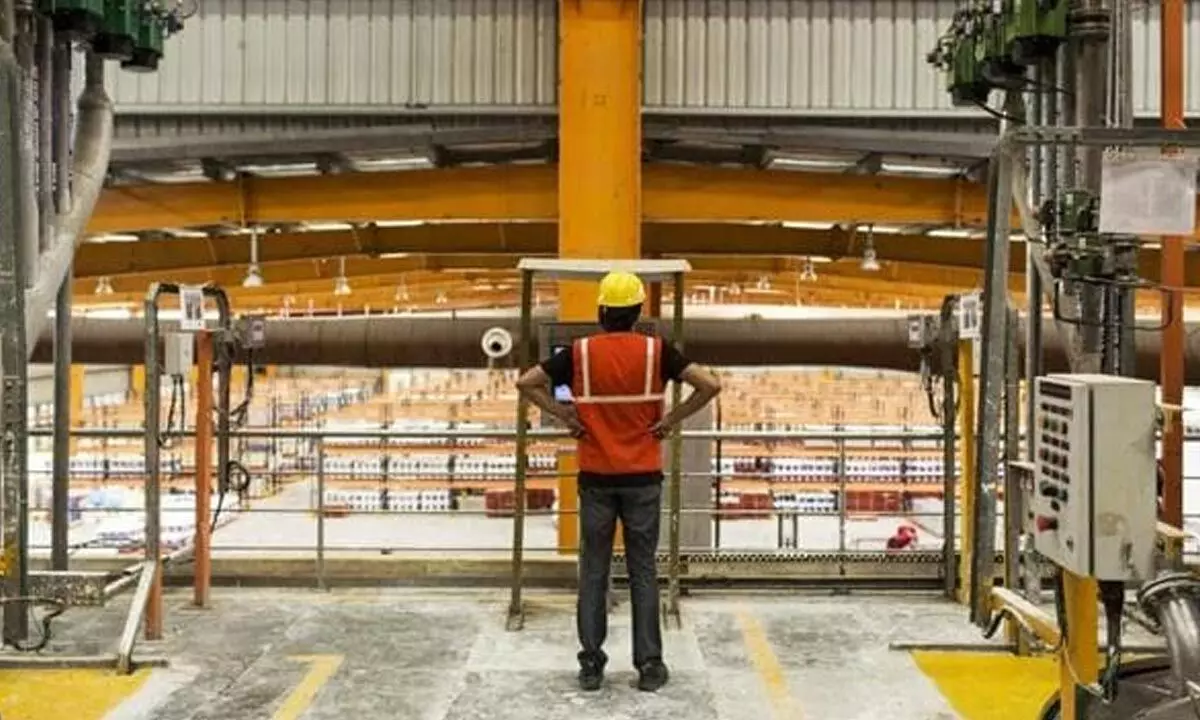Push to mfg sector can resolve India's jobless growth problem
Apple has started manufacturing of the latest iPhone 14 in India. The global giant is doing so through the company's contract manufacturer Foxconn's Sriperumbudur facility on the outskirts of Chennai.
image for illustrative purpose

Apple has started manufacturing of the latest iPhone 14 in India. The global giant is doing so through the company's contract manufacturer Foxconn's Sriperumbudur facility on the outskirts of Chennai. It's good news for the Indian manufacturing industry as a whole. India seems to be witnessing early success of China+1 wave (a business strategy to avoid investing only in China) that is sweeping the world. The Covid pandemic was a rude reminder of relying completely on any country in terms of manufactured goods. People had faced a lot of hardship owing to such heavy reliance during the last two years. Therefore, most countries are in pursuit of diversifying their supply chain. And India is trying to cash in from such efforts towards diversification. With announcement of various measures, Indian government is providing various incentives and tax breaks for manufacturers to set up plants in the country. Apple's move to start manufacturing from its Indian units is the outcome of these measures.
Not only global telecom giants, the country is also trying to be self-dependent on many strategic sectors. For instance, India is making a big push towards making the country a hub for global semiconductor industry. Despite such huge population and growing economy, India doesn't have any fabs, or semiconductor fabrication plants, which manufacture chips. Off late, the government trying to fill this critical gap. Recent announcement of Taiwanese firm Foxconn and mining giant, Vedanta to build one of the first chipmaking factories with an approximate investment of $19.5 billion is a step in that direction. Similarly, the country is trying hard to indigenise defence production to a large extent. Defence Ministry's continued pursuit of self-reliance in defence manufacturing along with minimising imports has prompted the government to come up with several positive indigenisation lists (PILs). These moves are likely to develop an ecosystem of small and medium private defence companies in the country, which augurs well for the economy. Against this backdrop, India's quest for achieving $300 billion electronics manufacturing and exports by 2025-26 seems realistic.
With push to the manufacturing industry, India will solve the critical gap in this sector. Currently, manufacturing industry contributes only around 15 per cent to Indian GDP. For a vast country like India, this figure doesn't bode well. With contraction of agriculture sector to Indian GDP over the years, people are migrating from the primary sector in droves. However, without a flourishing manufacturing industry, these people can't be gainfully employed. In turn, the country is witnessing a lot of shadow employment without any meaningful contribution to the economy. With a huge young population, rising unemployment can create social unrest. Therefore, it is critical that India develops a manufacturing ecosystem that boosts the small and medium businesses. Such step will lead to absorption of both skilled and unskilled labour. Much of India's growth in recent years is not leading to employment creation on a large scale due to overdependence on services sector. The services sector with a lion share of contribution to Indian GDP has its own limitation in terms of job creation. Therefore, the push to manufacturing sector is timely.

